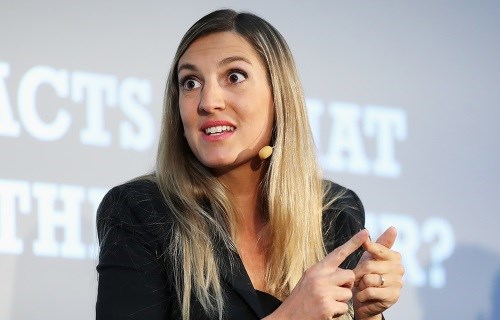Player contracts – too little protection, too much variation

Alexandra Gomez Bruinewoud, legal counsel with FIFPro speaking at the Socerex Convention. Photo:Lynne Cameron/Getty Images for Soccerex
06.09.2017
By Steve MenaryIn spite of FIFA’s regulations on the transfer of football players, third party ownership (TPO) still goes on, but on the black market and in different forms, said Daniel Cravo, senior partner at lawyers Cravo, Pastl & Balbuena, speaking on a panel at the Soccerex Global Convention in Manchester.
“The ban on TPO is not really working. When someone injects money into a transfer, then there is TPO,” Cravo said.
While TPO remains a problem, player contracts also continue to include ‘irrational’ clauses and vary too much from country to country, even within the European Union.
Speaking on a panel with Cravo titled “Player contracts – what protection do they offer”, Ian Lynam, joint head of sport at lawyers Charles Russell Speechlys LLP, cited a continued use of goal bonuses as the ‘least rational’ clause included in player contracts.
“In the [English] Premier League, there are two clubs that still pay substantial goal bonuses. At one in particular, a player can earn half their weekly salary with a good goal bonus,” said Lynam, who argued that goal bonuses only reward scoring rather than other areas such as defending and keeping clean sheets.
Lynam was also critical of the protection offered to players who suffered a career-ending injury.
“In the Netherlands, if you sign a contract for four years and then suffer a career ending injury you get all four years of your contract paid,” said Lynam. “In France, you only get paid 42 days. If you look at someone like Neymar [who has just signed for Paris Saint-Germain for £198 million] it makes a huge difference.”
Alexandra Gómez Bruinewoud, legal counsel at the players’ union FIFPro, criticised clauses inserted in contracts for low performance, asking: “How do you determine low performance?”
Citing FIFPro research that showed 41% of players are paid late, Bruinewoud called for an overhaul of the regulations.
She said: “It’s not sufficient the protection the contracts offered to players. How can contracts offer protection if nearly half the players are not being paid on time? We need to look at the regulations and improve them.”
But Daniel Lorenz, a lawyer and former head of legal at FC Porto, argued that players are better off than ever providing they get proper legal advice.
He said: “In Portugal, clubs cannot have debts. Not just to the players, but to all their workers. If you get a good lawyer, you are pretty much protected. I understand the concerns of FIFPro, but the players today have never been better protected.”
Lorenz argued that a good lawyer would remove restrictive clauses and gave an example of a recent transfer to China.
He said: “In China, they put in a clause typical for their culture that if you cannot work for eight days, you are sacked. If you are paying a player millions and millions, you cannot have that clause as they might get injured but it took me a week to get that taken out.”
“Legal skills must be balanced with common sense. There are clauses I cannot allow for any chance,” Lorenz said.
Steve Menary is covering the Soccerex Global Convention 2017 for Play the Game.
More information
Read more about FIFA's Transfer Regulations (PDF)
The Soccerex Global Convention is taking place between 4-6 September 2017 in Manchester England.
Read more about the convention




